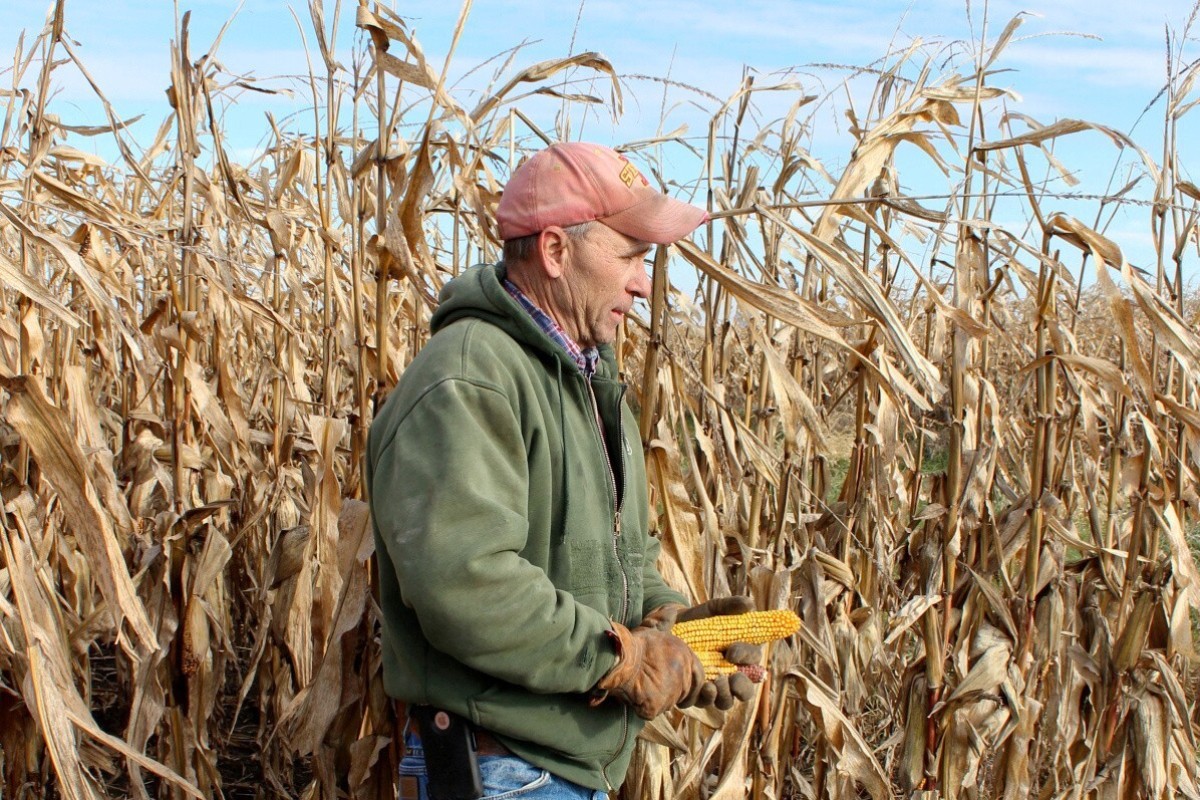The federal government is refusing to say whether it is still briefing outgoing diplomats bound for the embassy in Cuba — or those heading anywhere else — about the risks and lasting impacts of what's become known as "Havana syndrome."

A handful of Canadian diplomats who mysteriously fell ill in Cuba have been unable to return to work as investigators struggle to pinpoint the cause of their symptoms. A man walks beside Canada's embassy in Havana, Cuba, Tuesday, April 17, 2018. THE CANADIAN PRESS/AP-Desmond Boylan
Nearly two dozen Canadian diplomats and family members were diagnosed with “multiple functional and structural impairments” in their brains following their postings there, and documents obtained by Global News show officials warned departing diplomats in 2017 to stay silent on the risks.
And now, recent reports from the New York Times and GQ Magazine that American intelligence sources are pointing the finger at Russia as potentially responsible for similar symptoms in U.S. diplomats and spies, the Canadian government refuses to answer repeated questions about its investigation.![]()
"For privacy and security reasons, we cannot comment on the specifics of the ongoing investigations, individual cases, nor on specific security and briefing measures," said John Babcock, spokesperson for Global Affairs Canada on Monday.
The department's response — the same they gave to a set of questions one month ago — came after Foreign Affairs Minister Francois-Philippe Champagne's office declined to answer questions.
Read more: Canadian officials warned staff bound for Cuba to stay silent on ‘Havana syndrome’
The mystery began in late 2016 and early 2017 when American diplomatic staff at the embassy in Havana, Cuba, began reporting unusual symptoms similar to those from a concussion: hearing loss, memory loss, tinnitus, nose bleeds, vision problems and vertigo, among others.
Canadian diplomatic staff and their families began reporting symptoms in early 2017 and into the following year, with more than 40 Canadian and American diplomats and their families impacted.
But nearly four years after the onset of the mystery, there are no official answers and the Canadian government is fighting 15 of those Canadians impacted in court, arguing the plaintiffs have made “exaggerated” claims.
Global News filed multiple access to information requests for internal emails and official correspondence from Global Affairs Canada about the matter in September 2017, when media reports began emerging of mysterious symptoms affecting diplomats in Cuba.
Those records show officials at Global Affairs Canada warned diplomats departing in the summer of 2017 not to say a word about the symptoms being reported by those already stationed in Havana, and that those briefings made no mention to the fact Canadian children were among those impacted.
“You all have top secret clearance — and understand the responsibilities and obligations that come with that clearance. This information can not be shared," said one of the briefing notes.
Diplomat Allen, a pseudonym imposed by the Federal Court for one of 15 diplomats and their family members now suing the government over its handling of the matter, said the list of symptoms outgoing diplomats were briefed on didn’t come close to what was happening.
He said the briefings given to a new batch of diplomats being sent to join the embassy left out key details — including that his own children had suffered symptoms after a “screeching, metallic” noise was heard in their home in Cuba
He recalled how one woman, who had been posted to the embassy that summer with a young child, approached him several weeks after arriving to ask what his family had experienced several weeks prior.
“She said, ‘They never said anything about kids being affected.'”
That individual and her child are now among the 15 plaintiffs in that $28-million case.
Read more: Canadian officials wondered if Cuba staff imagined symptoms from mysterious attacks
Conservative foreign affairs critic Michael Chong said the government is failing its diplomats by refusing to provide support and clear information about the situation, which remains unresolved.
"The fact that the Liberal government continues to ignore calls from Canadian diplomats and their families for answers about what the government knows about the Havana Syndrome is extremely disappointing," said Chong.
"The Liberals have failed to take steps to protect our diplomats and their families, and are now failing to provide answers about what they knew. The Liberals should also work with our allies and officials to eliminate this risk to our personnel."
"The government must ensure that Canadian diplomats are properly briefed about any security concerns and all necessary steps are taken to ensure their safety, whether in Cuba or anywhere else in the world.”
Government lawyers are arguing in court that diplomats are "exaggerating" their symptoms.
But neither Champagne's office nor Global Affairs Canada would say why, if that's the case, it is still listing the embassy in Cuba as an unaccompanied posting nearly two years after the last reports of new cases, meaning diplomats cannot bring spouses or dependents with them.
That's a risk designation shared with the embassies in countries like South Sudan, Libya and Afghanistan.
Nearly two dozen Canadian diplomats and family members were diagnosed with “multiple functional and structural impairments” in their brains following their postings there, and documents obtained by Global News show officials warned departing diplomats in 2017 to stay silent on the risks.
And now, recent reports from the New York Times and GQ Magazine that American intelligence sources are pointing the finger at Russia as potentially responsible for similar symptoms in U.S. diplomats and spies, the Canadian government refuses to answer repeated questions about its investigation.
"For privacy and security reasons, we cannot comment on the specifics of the ongoing investigations, individual cases, nor on specific security and briefing measures," said John Babcock, spokesperson for Global Affairs Canada on Monday.
The department's response — the same they gave to a set of questions one month ago — came after Foreign Affairs Minister Francois-Philippe Champagne's office declined to answer questions.
Read more: Canadian officials warned staff bound for Cuba to stay silent on ‘Havana syndrome’
The mystery began in late 2016 and early 2017 when American diplomatic staff at the embassy in Havana, Cuba, began reporting unusual symptoms similar to those from a concussion: hearing loss, memory loss, tinnitus, nose bleeds, vision problems and vertigo, among others.
Canadian diplomatic staff and their families began reporting symptoms in early 2017 and into the following year, with more than 40 Canadian and American diplomats and their families impacted.
But nearly four years after the onset of the mystery, there are no official answers and the Canadian government is fighting 15 of those Canadians impacted in court, arguing the plaintiffs have made “exaggerated” claims.
Global News filed multiple access to information requests for internal emails and official correspondence from Global Affairs Canada about the matter in September 2017, when media reports began emerging of mysterious symptoms affecting diplomats in Cuba.
Those records show officials at Global Affairs Canada warned diplomats departing in the summer of 2017 not to say a word about the symptoms being reported by those already stationed in Havana, and that those briefings made no mention to the fact Canadian children were among those impacted.
“You all have top secret clearance — and understand the responsibilities and obligations that come with that clearance. This information can not be shared," said one of the briefing notes.
Diplomat Allen, a pseudonym imposed by the Federal Court for one of 15 diplomats and their family members now suing the government over its handling of the matter, said the list of symptoms outgoing diplomats were briefed on didn’t come close to what was happening.
He said the briefings given to a new batch of diplomats being sent to join the embassy left out key details — including that his own children had suffered symptoms after a “screeching, metallic” noise was heard in their home in Cuba
He recalled how one woman, who had been posted to the embassy that summer with a young child, approached him several weeks after arriving to ask what his family had experienced several weeks prior.
“She said, ‘They never said anything about kids being affected.'”
That individual and her child are now among the 15 plaintiffs in that $28-million case.
Read more: Canadian officials wondered if Cuba staff imagined symptoms from mysterious attacks
Conservative foreign affairs critic Michael Chong said the government is failing its diplomats by refusing to provide support and clear information about the situation, which remains unresolved.
"The fact that the Liberal government continues to ignore calls from Canadian diplomats and their families for answers about what the government knows about the Havana Syndrome is extremely disappointing," said Chong.
"The Liberals have failed to take steps to protect our diplomats and their families, and are now failing to provide answers about what they knew. The Liberals should also work with our allies and officials to eliminate this risk to our personnel."
"The government must ensure that Canadian diplomats are properly briefed about any security concerns and all necessary steps are taken to ensure their safety, whether in Cuba or anywhere else in the world.”
Government lawyers are arguing in court that diplomats are "exaggerating" their symptoms.
But neither Champagne's office nor Global Affairs Canada would say why, if that's the case, it is still listing the embassy in Cuba as an unaccompanied posting nearly two years after the last reports of new cases, meaning diplomats cannot bring spouses or dependents with them.
That's a risk designation shared with the embassies in countries like South Sudan, Libya and Afghanistan.









